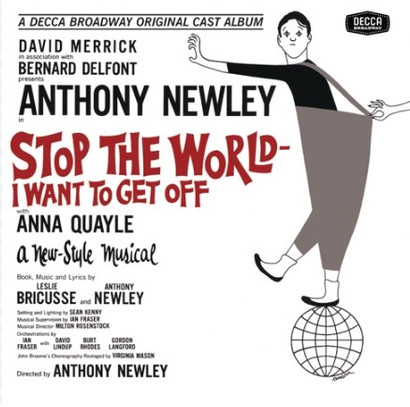The Whole Truth And Nothing But The Truth
- kristin5141
- Jun 13, 2025
- 4 min read
Somewhere around 1960, my father acquired a secondhand radio/record player in a big wooden cabinet. It was an ugly thing, but it meant my sister and I had a radio (to listen to CFUN and CKLG) and could finally start collecting records. The turntable even came with one of those gadgets that allowed you to stack 45s and listen to a medley of songs before you had to change the stack. The music went on the minute we walked in the door after school, and my father's first words when he got home from work each day soon became, "Turn that thing down!"
Based on the volume at which we listened to music, you might think he regretted buying that machine, but I don't think so. You see, he and my mom also used it. In fact, they used it so much, I suspect Dad didn't purchase it for my sister and I at all! My parents had a whole collection of records from the Big Band Era, which they listened to -- and even danced to in the evenings after a beer or two. I have to admit they had some pretty smooth moves.
But there was another genre of music they also listened to -- the soundtracks from Broadway and motion picture musicals.I quickly became a fan, and was soon singing along. I still know all the words to the songs.
Gigi was one of my favourites. I'd seen the movie and so was well-acquainted with the story. In one scene, the character played by that old charmer, Maurice Chevalier, was reliving the relationship he'd had with Mme. Alvarez (Hermione Gingold) when they'd been young. Part of their exchange went like this:

Maurice: We met at nine.
Hermione: We met at eight.
Maurice: I was on time.
Hermione: No, you were late.
Maurice: Ah, yes. I remember it well.
We dined with friends.
Hermione: We dined alone.
Maurice: A tenor sang.
Hermione: A baritone.
Maurice: Ah, yes. I remember it well...
You wore a gown of gold.
Hermione: I was all in blue.
Maurice: Am I getting old?
Hermione: Oh, no. Not you.
How strong you were, how young and gay,
A prince of love in every way.
Maurice: Ah, yes. I remember it well.
Which brings me to the point of this blog. Truth. When it comes right down to it, truth is often in the eyes of the beholder. It's kind of like the denotation and connotation of words. You have the literal truth and then you have the truth as individuals perceive it. In terms of actual living, the latter is probably the more important, because perceived truth is what becomes part of who we are.
Why each of us sees the truth a bit differently is likely influenced by memory, attitude, emotion, time, agenda, morals, and a dozen other factors. After all, we are not machines. We are living, breathing, thinking, feeling beings. The truth comes with strings attached. It becomes what we need it to be. That's why when a lamp gets broken, two children in the room at the time of the mishap might have slightly different recollections of the event. It needn't be that either of them is lying; they are just interpreting the facts to fit their needs.
I also think that truth evolves over time. The edges become rounded, the best parts are polished to gleam. The bad bits get pushed to the back of the mind, and what we don't actually remember, we improvise until that becomes part of the truth too. A story told over time becomes a gem to be cherished, and the owner of that truth might not even recognize the original if they were to see it on video.
Here's a case in point. My husband and I were having dinner with old school friends several years ago, and my friend said, "Remember Lyn Peters' pyjama party when we all tried smoking?"
Well, I didn't remember the sleepover, and I certainly didn't remember smoking. "No," I said. "I must have missed that one. I don't remember it, and anyway I wouldn't have smoked," I assured her in a holier-than-thou tone. She insisted. So did I.
That's when she dug out the photograph, and there was teen-aged me dragging on a cigarette. How could I argue with that? I'm no psychologist, but I suspect that was a truth too far for me. As an adolescent, I prided myself on travelling the straight and narrow and doing it better than anyone had before. The smoking episode would not fit well with the image I had of myself, so I think I blacked that truth out. I didn't want it to be part of my identity.
My aged aunt once told me a story about times spent at a rustic cottage at Winnipeg Beach when she was a child. Though I don't recall the details, electricity played a part in this particular story set in the late 1920s. Puzzled, I said, "Would the cottage have had electricity at that time?" She thought a moment and then admitted sheepishly that it couldn't have had. I could tell it embarrassed her to have mis-remembered. (I hope I didn't ruin that truth for her.)
This epiphany about truth is especially enlightening for me as a writer, because it means the antagonist in one story can become the protagonist in another. It's all a matter of whose point of view the story is told from. I might have to try retelling one of my stories from the antagonist's point of view to see if he/she can credibly become the protagonist.
Ah, the thoughts that find their way into my head. As if there's not enough going on in there already.














I used to keep a daily diary. Quite specific about times and weather etc.
Now I keep a photo diary this was one of yesterday's entries
My father-in-law kept a daily journal mainly, I think, so he'd be able to settle future arguments with his wife about what really happened.😂
Ah, truth. God knows how many things my daughter and I remember quite differently. I do sometimes wish there were photos, or recordings, for no other reason than to remind me about reshaping of events I've done to become the protagonist rather than the antagonist.